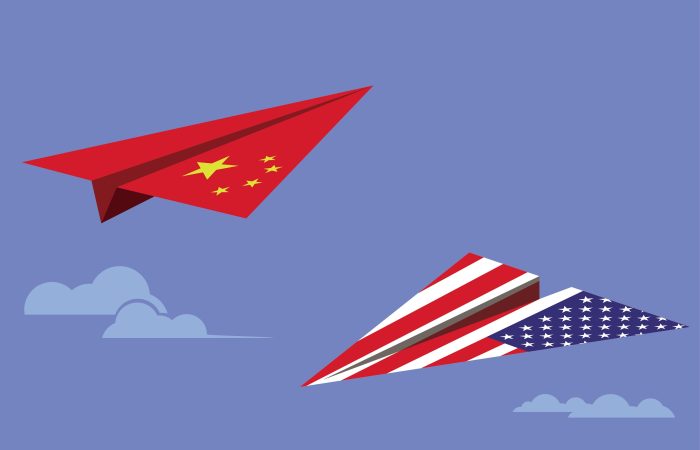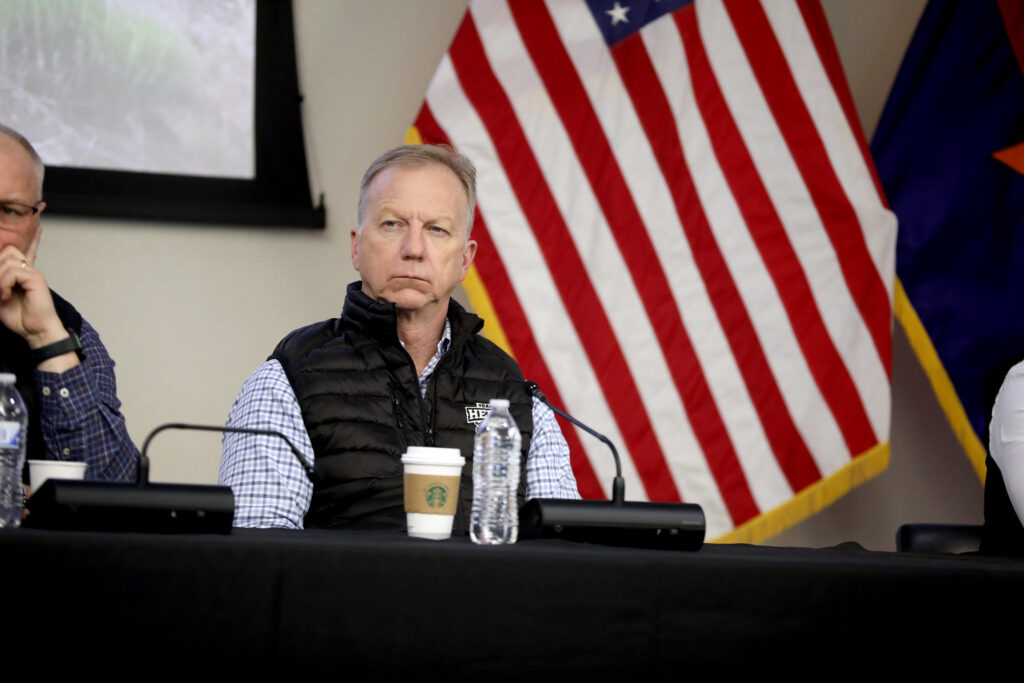On February 12, 2024, the Brookings John L. Thornton China Center hosted a thought-provoking discussion titled “Is the US-China relationship America’s most consequential bilateral relationship?”, where panelists offered diverse perspectives, reflecting the complexity of US-China relations’ global impact, strategic competition, and cooperation areas.
This event is part of the Brookings Global China Series and was moderated by Evan Osnos (Nonresident Senior Fellow, Foreign Policy, Brookings). It featured distinguished scholars and practitioners, including Graham Allison (Douglas Dillon Professor of Government at Harvard University), Josh Carton (Adjunct Professor at Georgetown University), Elizabeth Economy (Senior Fellow at Hoover Institution, Stanford University), and Susan Thornton (Senior Fellow at Pulsar China Center, Yale Law School).
At the beginning of the event, the experts each briefly presented their viewpoints. Graham Allison spoke first, emphasizing emphatically that the relationship with China is America’s most consequential bilateral relationship. He supports this by highlighting the unique position China holds in being able to significantly impact the U.S. through decisive actions, comparable only to Russia. China challenges the United States’ global leadership and threatens the post-World War II international order that has maintained peace among major powers for decades. He also points out China’s pivotal role in the global economy, not just as a major trading partner for key regions like the European Union and Japan but also as a central hub in global supply chains, especially for essential ‘green and clean’ items. Furthermore, he notes China’s status as the largest emitter of greenhouse gasses, underlining its significant environmental impact. He ultimately frames China and the U.S. as “conjoined Siamese twins,” indicating the complexities and inextricable nature of the U.S.-China dynamics, and asserts the undeniable importance of the U.S.-China relationship for future American leadership and global stability.
Conversely, Josh Carton expressed a completely opposite standpoint and presented three lines of argumentation. First, he challenges the concept of “supreme consequence” in international relations, emphasizing the multidimensional and unpredictable nature of global dynamics. Carton suggests that the importance of international relationships can vary over time, necessitating a broad strategic perspective to adapt to sudden changes and seize opportunities. Second, Carton posits that other countries, notably in the Western Pacific and Mexico, could be as or more consequential to the United States due to specific geographical and strategic considerations, suggesting these deserve equal or greater policy attention. Finally, Carton criticizes that labeling any relationship as supremely consequential, including the U.S.-China relationship, results in misallocation of attention and resources. He is also against the concept of interdependency, while encouraging a broader, more flexible approach to international relations.
Following that, Elizabeth Economy also challenges the notion that the U.S.-China relationship is America’s most consequential by distinguishing between “impact” and “relationship.” She acknowledges China’s significant global influence in areas like trade, military, and climate change but argues that this impact does not equate to a meaningful bilateral relationship. “Relationship implies a level of engagement, a level back and forth between actors. Impact is simply that an effect that one actors actions have on others,” she clarifies. She illustrates that, historically, the state of U.S.-China relations has had a limited effect on China’s decisions or global actions, such as its stance on Russia, territorial claims, intellectual property theft, and climate policies. Instead, Economy believes that the most consequential relationships for the U.S. are with its network of allies and partners, which are based on shared values and interests. These alliances and partnerships are crucial for the success of major economic and technological initiatives.
Susan Thornton disagrees with Economy’s point that the U.S. has no influence over China. She believes the U.S. and China profoundly influence each other’s actions and policies, stating, “there’s really no other single country relationship, or even collection of countries, that’s really going to have a bigger impact on the future of American citizens than China is.” She mentions that the U.S. essentially established the architecture of a global economic system where all countries are interdependent, highlighting the significant interdependence between the U.S. and China as the two largest economies. Furthermore, she considers their roles as the world’s largest militaries. She highlights the potential for conflict, particularly in the Western Pacific, and the shared responsibility in shaping future technologies like AI and gene editing, which have far-reaching implications for humanity. Thornton concludes that the U.S.-China relationship is critically important and asserts that the U.S. has the agency to affect change and should not resign itself to a passive role in this bilateral relationship.
Subsequently, the discussion moved into the second segment, where the panelists responded to one another’s views. Graham Allison agreed with Susan Thornton’s perspective and argued for the inherent difficulty in “complete decoupling” due to global interdependence, stressing the intertwined nature of China and the U.S. in various global systems, including economic and environmental arenas. In response, Josh Carton offered a nuanced view, differentiating between global challenges where China plays a part and issues specifically bilateral between the U.S. and China. He advocated for a focus on collective efforts rather than bilateral endeavors to address global challenges, suggesting a strategic redirection from direct U.S.-China engagements to broader alliances and third-country involvements. Elizabeth Economy expressed skepticism about the unanimous agreement on China being the most consequential bilateral relationship, emphasizing the difference between impact and engagement. She noted the limited nature of current U.S.-China engagements compared to those with U.S. allies and highlighted the significant divergences in bilateral relations due to differing values and priorities.
Drawing on her working experiences in the U.S. government, Susan Thornton addressed the importance of prioritization in American foreign policy, distinguishing between urgent and important issues. She acknowledges the significance of the U.S.-China relationship but cautions against an overemphasis that could misallocate resources. Thornton suggests a balanced approach, advocating for enhanced multilateral engagement over unilateral actions in order to reflect a broader array of global perspectives and priorities. She emphasizes the necessity of integrating other countries’ views into the U.S.-China discourse, thus proposing a shift towards more inclusive, multilateral discussions to avoid a new Cold War scenario and address global system disparities more effectively.
By asking about specific measures to solve problems above, Evan Osnos initiated the third round of discussions. In discussing the necessity of efforts from both sides in the development of U.S.-China relations, Josh Carton used the metaphor “what one needs two to tango.” He also believes that addressing the so-called China problems requires multilateral causation. The United States should appeal for more transparency and dialogue through multilateral frameworks rather than bilateral engagements, bringing allies and partners into conversations with China on shared concerns. Elizabeth Economy suggests that the U.S. and China should enhance cooperation in the fields like science and technology, but more importantly, there should be “more civil society contact,” implementing specific policies to protect individuals from both countries. Graham highlighted the inherent contradictions within the U.S.-China relationship, characterized by the dual necessities of competition and cooperation. He advocated for a balanced approach which focuses on competitive coexistence, strengthening alliances, and preventing misunderstandings through diplomacy.
To close the event, the Q&A session touched on several critical areas like climate change, systemic threats and challenges, and the Taiwan issue.
To answer the question regarding the pressing issue of climate change, Elizabeth Economy highlighted the collaborative efforts between the U.S. and China, notably between Climate Envoy John Kerry and his Chinese counterpart. She emphasizes the importance of both nations leading in climate change mitigation, though actual outcomes remain uncertain. Susan Thornton suggests that, while complete innovation could drastically change the dynamics, practical, parallel efforts without direct cooperation might be more realistic. Thornton also highlights the importance of not being at odds to prevent other countries from exploiting disagreements.
Speaking on whether China constitutes a systemic threat or a challenge, Graham cited Lee Kuan Yew, noting China’s aspirations in the Western Pacific. Josh Carton discussed China’s impact on global systems, distinguishing between ideological threats and actual practices. Elizabeth Economy noted China’s attempts to reform global governance and its impact on various international issues, emphasizing the transformative nature of Xi Jinping’s agenda.
At the very end of the event, Susan Thornton specifically addressed the Taiwan issue, holding the view that strategic ambiguity has been effective in U.S.-China-Taiwan relations. She warns that evolving dynamics and growing impatience could undermine stability. For future peace, she underscores the importance of careful management and proactive engagement with China to avoid conflict.




